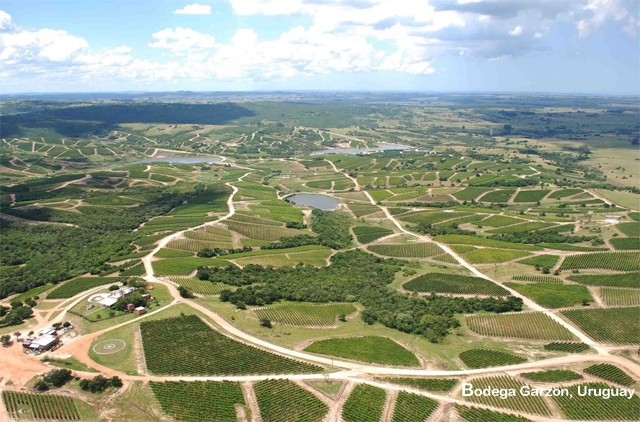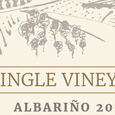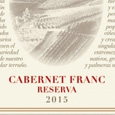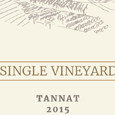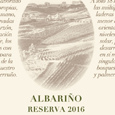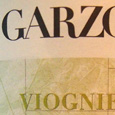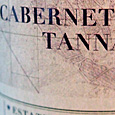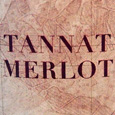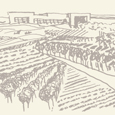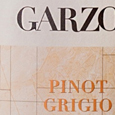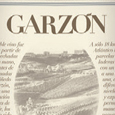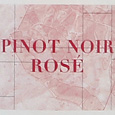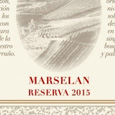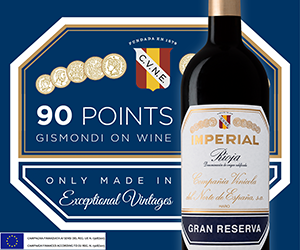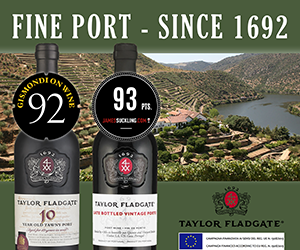Mention tannat to seasoned wine drinkers and you will get a mix of responses.
Some think France, others are reminded of a highly tannic red wine, while some think Uruguay where the grape is part of the national heritage. The original tannat material came to Uruguay from France in the late 19th century and has been grown uninterrupted for 130 years. It’s a grape that has adapted well to the region. Historically, tannat has been grown on the flatlands of the Canelones Department in heavy clay soils that enhanced its already substantial structure and tannins.
Most of the tannat I have encountered over the years has been rustic, to say the least. To that end I was intrigued by a tannat made by Uruguay’s Bodega Garzón. I first encountered the Garzón elegance at a trade show in Germany in 2015. It turns out the Garzón project is a gigantic undertaking put together by a team of people led by Argentine oil man Alejandro Bulgheroni and his long-time friend Carlos Pulenta, rich in wine business knowledge. Together the pair are buying wine estates across the globe including Vistalba and Argento in Argentina, Renwood in California, Château Suau in Bordeaux, Dievole in Tuscany, and more recently, a vineyard in the Greenoch sub-appellation in the fame Barossa Valley where they are about to release a Barossa shiraz. It doesn’t hurt that Bulgheroni, ranks number 324 worldwide on the Forbes: The World’s Billionaires list and number one in Argentina (with a real net worth of $4.6 billion).
Bodega Garzón is like no other winery project I have seen. It bears the LEED certification for the entire facility, including vineyards, winemaking and hospitality along with a commitment to sustainable, green farming practices.
The wines are in the hands of noted Italian winemaker and viticulturist Alberto Antonini. Antonini has been with the project from the start. After Bulgheroni dismissed Antonini’s conservative 20-hectare plan to launch the project (suggesting to Alberto “At my age we need to move quickly”) Antonini laid out a 200-hectare vineyard, in 1200 individual blocks, spreading them far and wide across the granite hillsides. In between the blocks he left extensive swaths of bio-diversity giving the property a bit of a mixed-farming, Tuscan look.
The winery is a vast expanse of concrete and large wooden foudres mostly tucked below the surface of the land. As perfect as the facility is, it’s the tannat and albariño grapes that are going to put the place on the map, and the 1000-hectare ampitheatre's rolling hills are little more than 18 kilometers, as the crow flies, from the cool Atlantic Ocean. It's the ideal home for both grapes.
Antonini opted to bring in the French tannat clones from Madiran rather than using those available locally and early results would suggest he made the right decision. “We decided to have a focus on grapes. Tannat was here forever and the most important grape. Albariño seemed a good possibility because there are a lot of similarity with Galicia but we didn’t want to look too much at that.
Last week, Treve and I caught up with Alberto Antonini in Vancouver and finally had a chance to look at the entire Garzón lineup likely to move forward internationally (see our notes below), We also took the opportunity to video Antonini and ask him about the progress at Garzón, and with the help of the winery. we included some footage of this remarkable Uruguayan project.

 quicksearch
quicksearch

